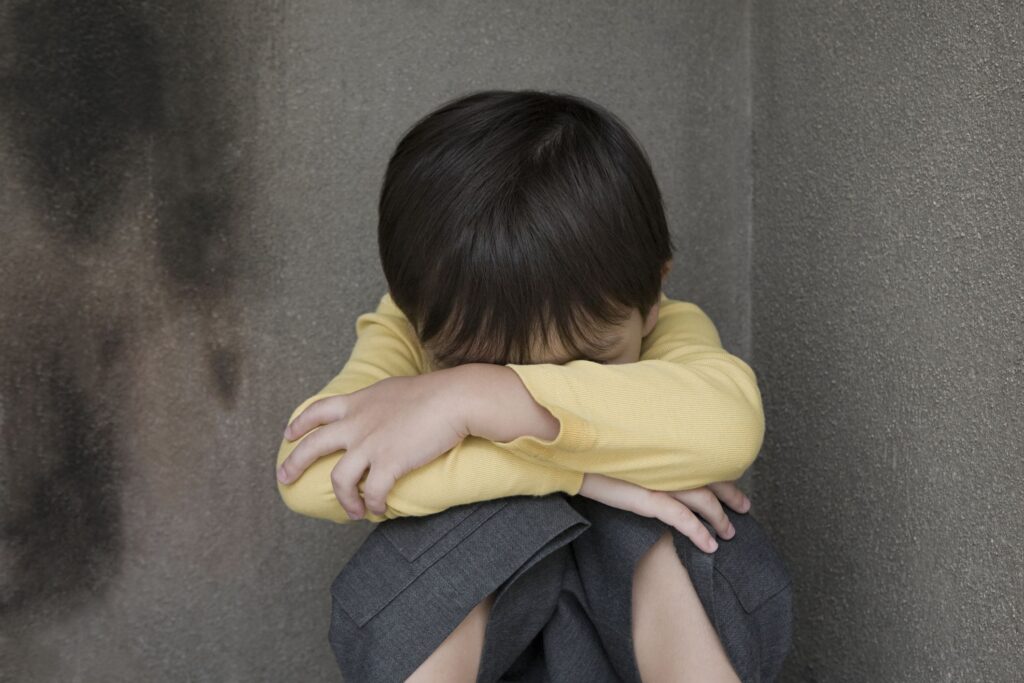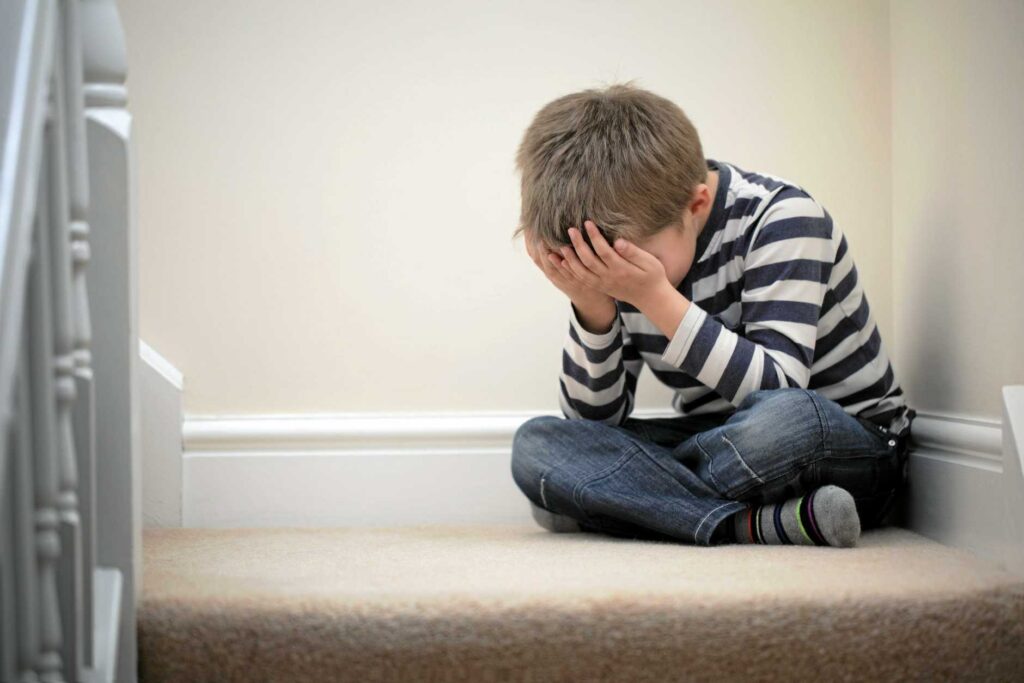Top 5 Traumatic Childhood Memories and How to Cope with Them

Childhood memories often evoke pleasant associations of the “good old days” and times of joy, playfulness, and unabandoned freedom. These feel-good remembrances have a lasting and powerful impact on a person’s psyche. A study published by the American Psychological Association found that the more positive childhood memories one has, the higher their likelihood of being happy and healthy in adulthood. Happy childhood memories tend to correlate with better mental and physical health.
The Impact of Traumatic vs. Negative Memories

But, if happy recollections tend to predict greater health and happiness across a lifetime, what do we make of the negative and unpleasant childhood memories? Do they, conversely, end up producing unhappy and unhealthy people in the long run?
Not necessarily. Some negative childhood memories are innocuous: A person may replay them in the mind with detached observation. However, other childhood memories—the traumatic ones—can trigger chronic feelings of fear, anger, and sadness in adults. (Learn how treatment is helping people heal from traumatic memories and experiences at FHE Health.)
Traumatic childhood memories can make strong impressions in the mind, stubbornly attaching to the brain’s memory system to leave permanent mental scars. Left untreated, these scars can injure people’s self-esteem, preventing them from reaching their life goals. These scars can also handicap a person’s ability to have intimate, healthy relationships.
Traumatic Childhood Memories That Can Cause the Most Damage

From my own experience as a clinician specializing in trauma and trauma-based therapies, the following traumatic memories can cause the most emotional and mental damage and are therefore among “the top five traumatic childhood memories”:
Abuse
Child abuse teaches children the unfounded belief that there is something wrong with them that warrants excessive forms of punishment. Victims of child abuse may grow up to be adults who are unable to get close to others, because it wasn’t safe for them to do so as a child. Adult victims of child abuse often have difficulty managing their emotions and in turn can suffer from anxiety and depression. Abuse comes in different forms, be it physical, emotional, or sexual. Physical abuse may cause people to re-create violent relationships or unwittingly end up in them. Emotional abuse may cause a person to remain in unhealthy relationships with excessive criticism and negative judgment. Sexual abuse can hinder healthy, satisfying sexual relationships.
Neglect

A silent form of abuse is neglect. Physical and emotional neglect are non-verbal messages that a child is not important or of little value to this world. Memories of having been left alone—as a latchkey kid, for instance—can have damaging effects on a person’s ability to trust others. A parent who has a substance abuse problem may pass out regularly on the couch, leaving a child to cry without attending to their emotional needs. Traumatic memories of neglect build adults who may look for unhealthy ways of finding external validation.
Witnessing Violence
Just as damaging to the psyche as child abuse and neglect is the witnessing of violence and aggression towards other people. Memories of living in rough, crime-ridden neighborhoods can cause hypervigilance— an inability to relax because of the need to always be on guard. Worse yet is the witnessing of violent hostilities within one’s family, such as domestic violence. Children who experience this trauma may grow up to become adults who either avoid conflict altogether or lack boundaries, over-involving themselves in issues that don’t directly pertain to them.
Bullying
As they develop, children are always shaping their sense of themselves through the way others view them— particularly in the pre-teen and teenaged years. For many kids, being bullied by peers sends a strong message that who they are is unacceptable. This memory of shame can deprive a person of the capacity to meet their deep, fundamental human need for acceptance. In the absence of acceptance and belonging, there is a high risk for low self-worth and self-hatred. Adults with an unstable internal foundation may use unhealthy means to gain acceptance, such as drinking, using drugs, over-exercising, unhealthy dieting, sexual compulsivity, narcissism, and people-pleasing.
Family Separations and Divorces
Marital separations and divorces are difficult for children, because naturally kids want their families to remain intact. The traumatic memories do not necessarily come from the divorce itself, but the stressors that may surround the process. Having to decide which parent to live with, hearing negative talk from one parent about the other, being put in the middle and moving between homes, can be traumatic experiences that elicit feelings of sadness, anger, and helplessness. Later in life, these memories can make it harder to have healthy, committed relationships— or they can cause people to stay in an unhappy marriage just for the children.
How to Cope and Heal from Traumatic Childhood Memories

The good news is there is hope for healing from traumatic childhood memories. The following techniques and activities can help heal the scars and build a stronger foundation for healthy behaviors and relationships:
Journal
Get those traumatic childhood memories out of the mind and onto paper. Write down whatever comes to mind— freely, without worrying about grammar or run-on sentences. Journaling can be a very effective form of self-empowerment, as access to one’s uncensored voice. “Narrative therapy” can be another very therapeutic way to journal, whereby the person journaling tells their story in the third person and describes how their main character learns and grows from the adversity.
Therapy
Work with a trained mental health professional who has expertise in trauma therapy and can guide an exploration of traumatic memories as they come to the surface. As these painful memories emerge, a licensed trauma therapist should also be able to provide healthy coping strategies for managing any thoughts, feelings, and emotions that arise. Trauma therapies such as EMDR, Cognitive Processing Therapy, and Post-Traumatic Growth have helped many people relieve traumatic memories and find effective ways to cope with them.
Meditation

Research has proven that meditation helps calm the nervous system, which is often amped-up among survivors of childhood trauma. Meditation helps people learn to observe the racing thoughts that may come from childhood memories and let them go rather than latch on to them.
Family History Work
For those whose childhood seems to contain more traumatic memories than happy ones, family history work can help make sense of what happened and why. Children may blame themselves for their problems growing up. Healthy adults, however, are better able to appreciate that they were not responsible for the negative events that happened to them in childhood. Digging into one’s family history often reveals the generational patterns in unhealthy behaviors— and, in turn, helps to depersonalize them.
Spirituality
Building a foundation in spirituality solidifies an understanding that there is a universal energy that is constantly working to bring humanity into a deep space of peace and contentment. When one embraces this spiritual principle of goodness, even something traumatic can actually become a left-handed blessing for positive growth. Read books on spirituality, attend spiritual services, or find a spiritual guide to help navigate the traumatic memories and change the storylines from hurt to hope.
This article was provided by Dr. Sachi Ananda, PhD, LMHC, MCAP, who directs a specialized treatment program for first responders, “Shatterproof,” at the national behavioral health provider FHE Health.
